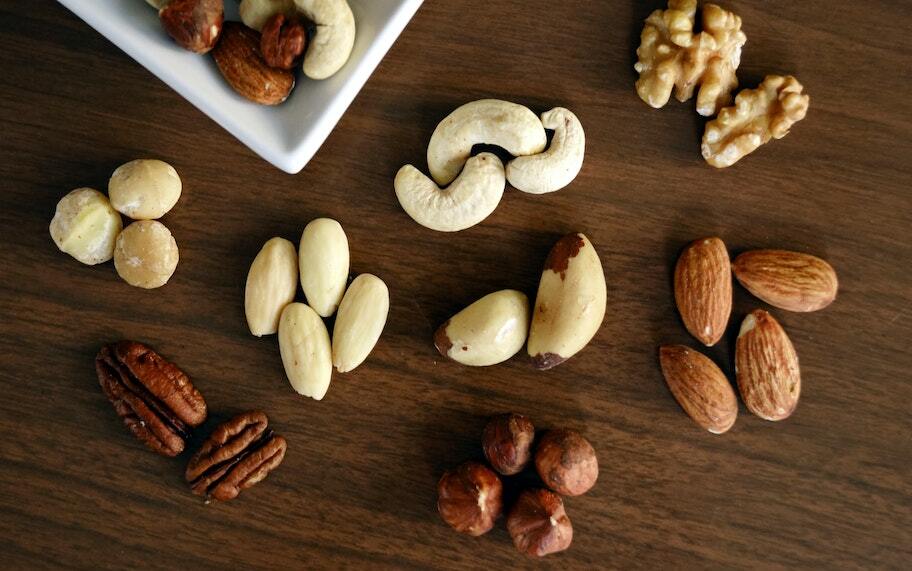You're craving a snack, and you reach for a handful of roasted nuts. As you savour their delectable crunch and irresistible flavours, you can't help but wonder, what's the magic that turns plain nuts into this irresistible treat?
In this blog post, we're diving deep into the art of roasting nuts. We'll explore how it enhances their flavour and texture, delve into the nutritional aspects of raw versus roasted nuts, provide storage tips, and even reveal the versatility of dry roasting for nuts.
Why Roast Nuts?
Have you ever wondered why roasted nuts are so irresistible? You see, when nuts are roasted, their taste, aroma, and crunch are taken to a whole new level.
The process of roasting enhances the natural flavours, giving them a delightful depth that will have your taste buds doing a happy dance. The gentle heat also helps develop an enticing aroma, making your snacking experience even more enjoyable. And let's not forget about the texture—a perfectly roasted nut offers a satisfying crunch that adds an extra layer of delight to every bite.
But there's more to it than just flavour and texture. Roasting nuts can actually enhance digestibility, making them easier on your stomach, especially if you have digestive sensitivities.
Researchers have found that roasted almonds, for example, are easier to digest than their raw counterparts. So, if you've been experiencing some digestive troubles, roasted nuts might just be the better option for you.
Now, let's talk about the different methods of roasting nuts.
When it comes to roasting nuts, you've got two main options: dry roasting and oil roasting.
In this guide, we'll mainly focus on the wonders of dry roasting. With dry roasting, you skip the added oil and simply apply indirect heat to the nuts. This method lets the natural flavours of the nuts shine without any fancy tricks. The best part? You don't need any extra oils or fats to get that mouthwatering roasted goodness!
Dry roasting isn't just about taste—it also comes with health perks. Unlike deep-fat frying, which involves dunking nuts in oil, dry roasting keeps things lighter and healthier. By using indirect heat, the nuts release their own natural oils, amplifying their flavour in the process. Plus, dry-roasted nuts tend to stay fresh for longer, so you can enjoy their deliciousness for an extended period.
Nutritional Differences Between Raw and Roasted Nuts
Now, you might be wondering, "Does roasting affect the nutritional value of nuts?" The short answer is, not significantly.
Raw and roasted nuts share many health benefits, including protein, fiber, and heart-healthy fats. While there are minor variations in fat, calories, and protein content between raw, dry-roasted, and oil-roasted nuts, these differences are relatively minimal.
Let's take cashews, for example, and compare their nutritional profiles.
One ounce of raw cashews contains about 157 calories, 12.43 grams of fat, 8.56 grams of carbohydrates, 5.17 grams of protein, and 0.9 grams of fiber.
Dry-roasted cashews, on the other hand, have approximately 163 calories, 13.14 grams of fat, 9.27 grams of carbohydrates, 4.34 grams of protein, and 0.9 grams of fiber.
As you can see, the differences are not significant.
However, it's worth noting that some vitamins and antioxidants in nuts may be slightly affected by the roasting process. For instance, vitamin E and thiamine levels can decrease during roasting, especially as the temperature increases. On the other hand, certain antioxidants may actually increase during a prolonged roasting process.
So, while some minor changes occur, the overall nutritional value of roasted nuts remains quite similar to their raw counterparts.
Storage and Shelf Life of Roasted Nuts
Whether you opt for airtight containers, room temperature storage, or refrigeration and freezing, there are guidelines to follow to ensure your roasted nuts stay delicious for as long as possible.
Airtight containers are your best friend when it comes to storing roasted nuts. They help keep moisture, air, and light at bay, which can cause nuts to become rancid or stale. For short-term storage, keeping the nuts in a cool, dry place at room temperature is perfectly fine. However, for long-term storage, it's recommended to refrigerate or freeze them.
Refrigeration or freezing can extend the shelf life of roasted nuts. When refrigerated, they can last up to six months, while freezing can prolong their freshness for up to a year. Just make sure to use airtight containers or freezer bags to prevent any freezer burn or absorption of odours from other foods.
To ensure your nuts are still good to munch on, pay attention to visual indicators and use-by dates. Spoiled nuts may exhibit signs of mold, bugs, texture changes, off-putting odours, or a bitter taste. If you notice any of these signs, it's best to discard them to avoid any negative experiences.
Conclusion
In this comprehensive guide, we've dived into the world of roasted nuts, uncovering their mouthwatering flavours, enhanced digestibility, and nutritional benefits when compared to raw nuts. We've also shed light on the important safety considerations and shared tips on how to store them properly. With all this valuable information at your fingertips, you're now equipped to fully savour the extraordinary taste and texture of roasted nuts.
Remember to source your nuts from reputable suppliers, be mindful of any potential allergies, and store them properly to maintain their freshness and quality. By following these simple yet essential steps, you can fully embrace the wonders of roasted nuts and experience the joy of a well-rounded snacking experience.

